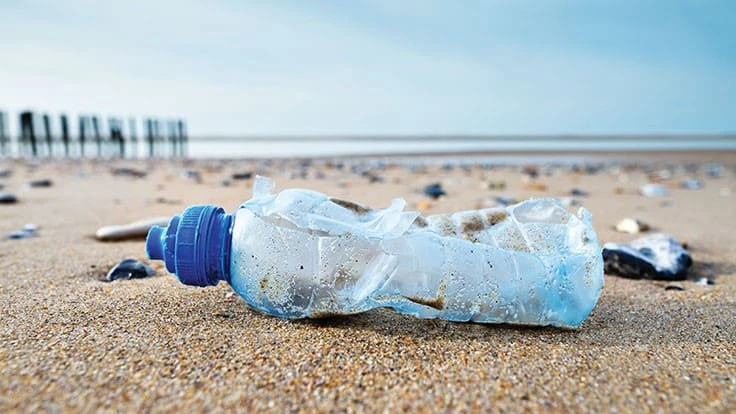
Image'in | stock.adobe.com
Circulate Capital, the New York-based investment management firm dedicated to incubating and financing companies and infrastructure that prevent ocean plastics in South and Southeast Asia (SSEA), has announced the first close of its $106 million Circulate Capital Ocean Fund (CCOF). The organization says CCOF is the world’s first investment fund dedicated to addressing Asia’s plastic crisis and is also one of the 10th largest ASEAN-based venture capital funds in the market.
CCOF’s founding investors include PepsiCo, the first investor, and Procter & Gamble, Dow Chemical Co., Danone, Unilever, The Coca-Cola Co. and Chevron Phillips Chemical Co. LLC.
With 60 percent of ocean plastic originating from this region, Asia is the biggest source of plastic leakage into global oceans. A recent Ocean Conservancy Report identified a net financing gap between $28 and $40 per ton for plastic debris collection in the five top ocean polluting countries in the world: China, Indonesia, Philippines, Thailand and Vietnam.
“The good news is that we are able to reduce nearly 50 percent of the world’s plastic leakage by investing in the waste and recycling sector in Asia, and even more if we invest in innovative materials and technologies,” says Rob Kaplan, CEO of Circulate Capital. “This is why we are here in Singapore—a strategic hub of Southeast Asia—to prove that investing in this sector is scalable for the region and can generate competitive returns while moving closer to solving the ocean plastic crisis.”
To address the financing gap between available private capital and the resources needed by Asia’s waste industry systems, CCOF will provide debt and equity financing to waste management, recycling and circular economy startups and small-to-medium enterprises in South and Southeast Asia focused on preventing plastic pollution and advancing the circular economy. Circulate Capital says it has identified more than 200 potential investment opportunities across a range of industries in the region, with its first investments targeted for the end of 2019.
Circulate Capital says its investment model seeks to mobilize institutional investors by blending concessionary funds with investment capital. Its objective is to demonstrate that investments in turning waste into value can ultimately provide attractive financial returns.
“For the beverage sector, the more recycled content used in any type of packaging, such as 100 percent recyclable plastics, the lower the carbon footprint,” Matt Echols, vice president, communications, public affairs and sustainability, Coca-Cola Asia Pacific, says. “That’s why at Coca-Cola we have invested in Circulate Capital and have committed to collect and recycle the equivalent of every bottle and can we produce by 2030. Packaging does not need to become waste. By investing in the waste collection and recycling sector in this critical region, beverage packaging can become a valuable material used again and again—a step closer towards a circular economy.”
“Circulate Capital plays a critical role in solving the issue of plastic waste in our environment,” says Bambang Candra, APAC vice president, Dow Packaging & Specialty Plastics. “Supporting companies and infrastructure that are addressing plastic waste will catalyze the development of systems designed to advance a circular economy for plastics.”
Latest from Recycling Today
- Hydro cites recycling as 2024 growth driver
- The impacts of the nation’s first textiles EPR law
- Smurfit Westrock launches new packaging to address EU regulation
- ArcelorMittal wins legal round in GFG dispute
- Real Alloys partners with Enviri on residuals diversion project
- Registration Now Open for C&D World 2025
- The Scrap Show: Johnnie Jr., Roger and Marcie Rodriguez, Comal Iron & Metals
- ASTM releases textile circularity standards report





